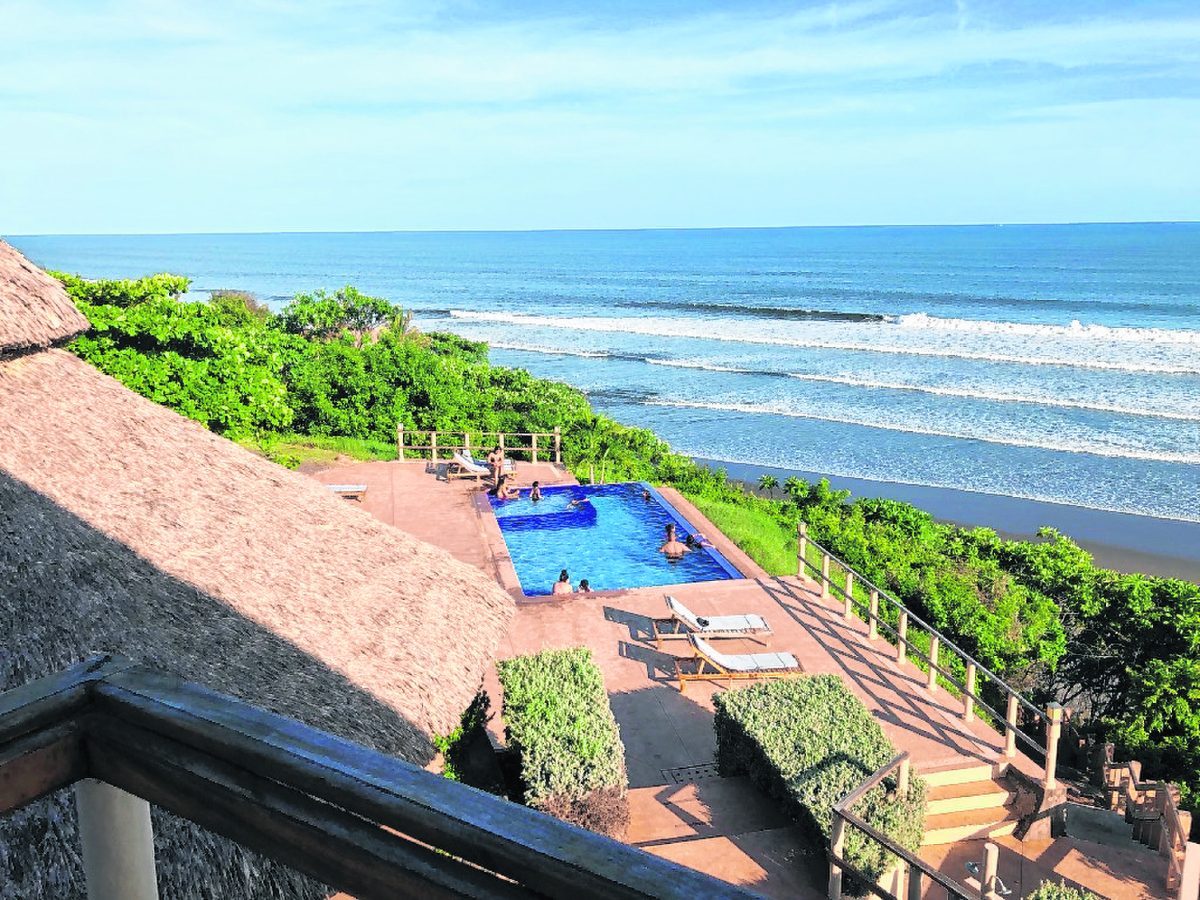
When considering your next international vacation spot, the black volcanic beaches of Cuco, El Salvador, are an option worth exploring.
In recent years, more and more Americans are traveling to the coastal resorts of the tiny Central American country to hike its 20 volcanoes, surf the powerful waves, experience sea turtle conservation and walk the black sand beaches.
In 1984 at the height of the Salvadoran Civil War, my wife and I visited the beaches of La Libertad along the Pacific coast among hundreds of local tourists. Body surfing, seafood and local culture left us with pleasant memories.
Last year, we returned to La Libertad with our three grandchildren to experience this same fun spot 34 years later. We enjoyed a tiny coastal resort on a cliff overlooking the ocean. For about $100 a night, Hotel Los Farallones, just 20 miles from the airport, offered an enchanting ocean-view room, a trampoline and playground for the kids, a palm tree-lined pool and seaside dining.
Just minutes from the small city, we enjoyed Salvadoran-style surfside dining and swimming by day and seafood or traditional pupusas (meat, cheese and bean-filled tortillas) at night.
This year, we chose the beaches of El Cuco in Usulután, about 100 miles south east of the airport, which we had avoided during the civil war because of heavy guerrilla activity. In contrast to last year’s more touristy beaches, the 6-mile, 30-minute drive along a rugged gravel road from the town of El Cuco to the tiny Hotel Los Mangos El Salvador demands seclusion.
For about $100 a night, we secured one of the four seaside units perched on a cliff with a breathtaking vista of the Pacific Ocean. The hotel boasts of “world-class surf point break Punta Mango,” and indeed, every day a modest stream of surfers, even a few blond-haired sports enthusiasts, plied their trade among the rolling waves.
A beautifully authentic thatched open-air restaurant offers mouthwatering crispy fried whole fish and grilled fillet recipes of sea bass at $12 each. Four hammocks and a tiny pool provide relaxation. A full-hour massage will set you back $35. While WiFi, mostly Spanish cable, uninterrupted electricity and air conditioning are standard features, this is not a five-star hotel. English is sparing, and don’t expect a microwave or minibar. Despite the restriction on bringing offsite food and drink into the compound, we toted a small cooler and a few snacks to the room.
A two-minute climb down the winding wooden staircase gives way to the private, pristine black sand beach that glistens in the sunlight. You can take a Frisbee, swim, walk at low tide or body surf. You will find harmless geckos in your room and fiddler crabs scampering along the beach.
My wife and daughter arranged a trip to the Conchagua Volcano in La Union, where they hiked to the overlook to witness the unique panorama of Nicaragua, Honduras and the Gulf of Fonseca and its islands in El Salvador. My other daughter, three grandkids and I stayed back at the hotel lounging in the hammocks, swimming in the pool, walking the beach, reading, eating fresh fish and relaxing.
If you are looking for luxury, nightclubs and barhopping, this tiny secluded mini-resort is not the place. Apart from two blond-haired surfing couples, the other guests were all locals. But this spot does offer breathtaking vistas, authentic Salvadoran hospitality, hideaway seclusion, excellent seafood, relaxation and value for your dollar.
Craig Davis, who was born in Seymour and graduated from Brownstown Central, currently lives in Tegucigalpa, Honduras, and works for a U.S. government contractor on school-based violence prevention. He is the author of “The Middle East for Dummies” and is conducting research for a genealogy and social history book in Kurtz and Freetown.
